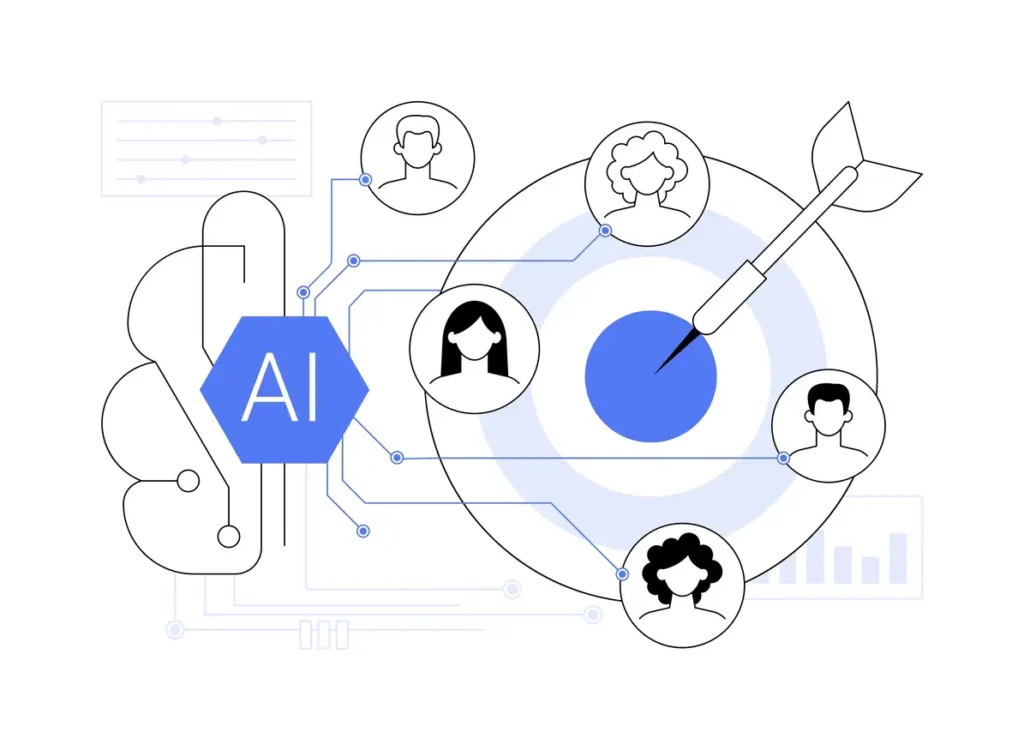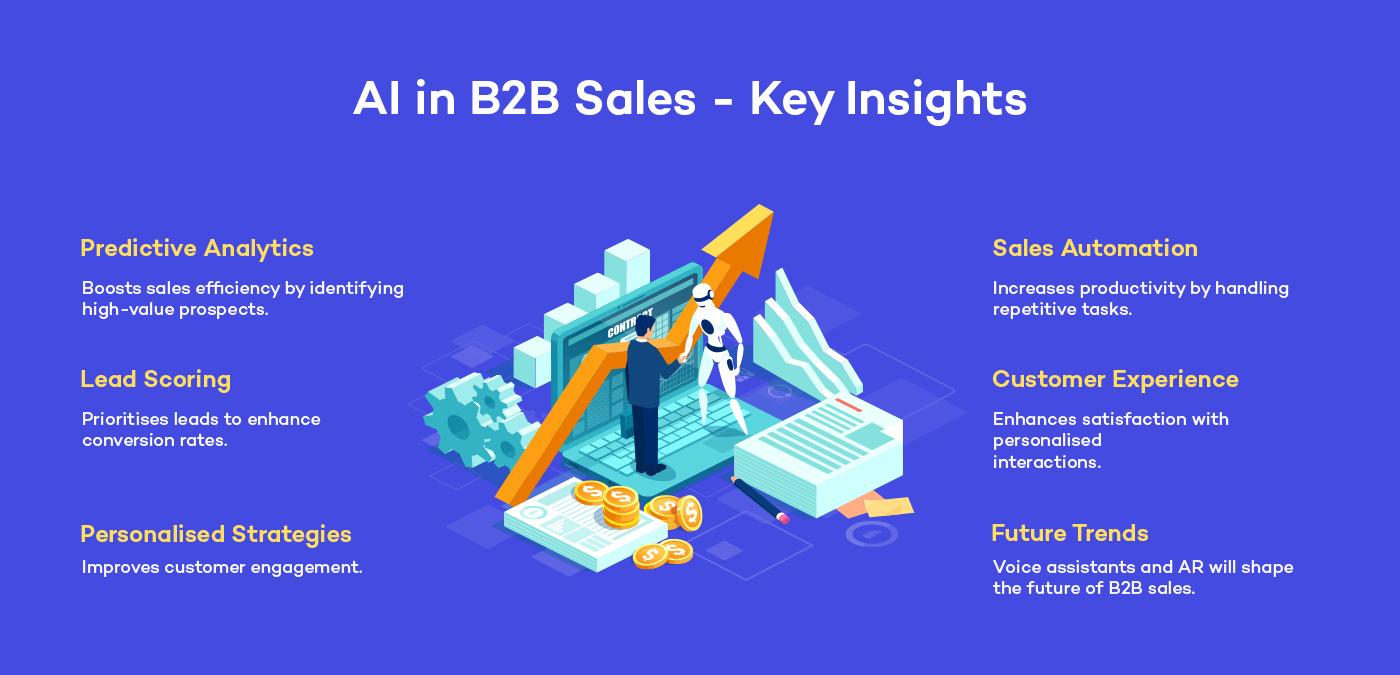Open Effectiveness and Growth With AI Automation for B2B Firms
AI automation is changing the landscape for B2B business. It decreases and streamlines procedures reliance on human intervention. This shift permits services to make quicker, data-driven decisions. As companies check out which refines to automate, they need to also take into consideration the right devices to implement. Nonetheless, obstacles stay in adopting AI modern technology. Business Process Automation. The implications of these adjustments might shape the future of numerous companies in means yet to be totally understood
Understanding AI Automation in the B2B Context
As companies increasingly look for effectiveness, understanding AI automation in the B2B context comes to be necessary. AI automation includes employing advanced modern technologies to improve operations, minimize human intervention, and boost decision-making procedures. In the B2B landscape, this can manifest in numerous types, such as automating customer solution interactions, managing supply chain logistics, or enhancing advertising campaigns. Business can utilize AI to examine substantial datasets quickly, allowing them to identify trends and understandings that educate calculated choices. In addition, AI systems can integrate effortlessly with existing technologies, offering a natural platform for managing organization functions. This understanding lays the foundation for companies to explore how AI can change their operations, boost productivity, and inevitably foster lasting growth in an affordable market.
Key Benefits of Implementing AI Automation

Recognizing Procedures Appropriate for Automation

Picking the Right AI Devices for Your Organization
When B2B companies take into consideration automating their processes, choosing the best AI tools becomes important for attaining desired results. Companies must start by examining their one-of-a-kind requirements and goals, making sure alignment with service goals (Minarik AI). Reviewing the scalability, assimilation, and adaptability capabilities of possible devices is essential, as these variables establish lasting efficiency. Organizations needs to also think about user-friendliness and the degree of support supplied by vendors, as these components can impact successful execution. Furthermore, examining consumer reviews and study can supply understandings into how particular AI services perform in real-world scenarios. By diligently choosing AI tools that fit their operational requirements, B2B companies can improve effectiveness and drive development while decreasing possible disturbances
Conquering Difficulties in AI Fostering
B2B firms frequently experience substantial difficulties in taking on AI technologies, particularly problems connected to data top quality and resistance to transform management. Poor information top quality can impede the efficiency of AI systems, while worker unwillingness to welcome brand-new procedures can stall implementation efforts - Growth Systems For B2B. Attending to these obstacles is crucial for effective AI assimilation and optimizing its prospective benefits
Information High Quality Issues
Ensuring high data top quality is important for the successful fostering of AI modern technologies in business-to-business settings. Inaccurate, incomplete, or out-of-date information can badly prevent AI initiatives, bring about wrong insights and poor decision-making. Business commonly deal with difficulties such as information silos, variances across various resources, and a lack of standard data layouts. To conquer these issues, organizations need to invest in information cleansing, assimilation, and governance procedures. Executing durable data management methods assures that the info fed right into AI systems is appropriate and reputable. Promoting a culture of data quality recognition among workers can boost data accuracy over time. By attending to data top quality worries, B2B business can launch the full potential of AI automation, driving performance and development.
Change Administration Resistance

Gauging the Influence of AI Automation
Determining the impact of AI automation in B2B companies requires a clear understanding of key efficiency signs (KPIs) that align with service goals. Effective information analysis strategies are crucial for translating the results, while durable ROI assessment approaches help determine the economic benefits of automation initiatives. Together, these parts supply a substantial structure for examining AI's contributions to business success.
Trick Efficiency Indicators
Secret efficiency signs (KPIs) act as essential tools for B2B firms to evaluate the effectiveness of AI automation efforts. By developing clear metrics, organizations can gauge improvements in operational performance, cost decrease, and earnings growth straight attributable to automation. Usual KPIs include cycle time reduction, mistake prices, customer contentment scores, and worker performance levels. These signs give understandings into exactly how AI systems are maximizing procedures and enhancing general efficiency. In addition, tracking KPIs makes it possible for companies to determine locations for more improvement and to align AI automation efforts with critical organization objectives. Eventually, a well-defined structure of KPIs assurances that B2B firms can quantitatively examine the influence of AI automation on their operations and drive continual development.
Data Evaluation Methods
Reliable information analysis techniques play a crucial role in assessing the effect of click to read AI automation within B2B business. By using analytical techniques, organizations can identify fads and patterns in functional data, enabling them to evaluate the performance gains attained with automation. Methods such as regression analysis and time collection forecasting give understandings right into just how AI-driven procedures affect efficiency and decision-making. Furthermore, data visualization tools can efficiently interact searchings for to stakeholders, assisting in notified tactical decisions. Machine learning formulas can additionally improve analysis by predicting future end results based upon historical data, supplying actionable understandings. Eventually, these methods allow B2B companies to measure success and optimize their AI automation efforts, ensuring placement with business purposes and boosting total performance.
ROI Assessment Strategies
Reviewing the return on financial investment (ROI) of AI automation is necessary for B2B business seeking to recognize the financial effects of their technological initiatives. Business can employ various ROI assessment methods to gauge the performance of AI implementations - Growth Systems For B2B. One effective method includes calculating cost savings by comparing operational costs prior to and after automation (Minarik AI). Furthermore, measuring performance enhancements through key efficiency signs (KPIs) aids measure the benefits of AI. Consumer contentment metrics can likewise offer understandings into the influence of automation on solution high quality. To assure a thorough analysis, companies ought to consider both straight abstract benefits and economic returns, such as enhanced decision-making abilities and affordable benefit. This complex analysis allows B2B business to make enlightened choices regarding future investments in AI modern technology
Future Fads in AI Automation for B2B Companies
What innovations exist in advance for AI automation in B2B companies? Arising trends indicate a substantial change towards improved information analytics abilities, enabling companies to make even more educated decisions. Predictive analytics will certainly come to be significantly crucial, enabling companies to anticipate market modifications and client demands. Additionally, the combination of AI with Web of Things (IoT) technology is expected to enhance procedures by giving real-time understandings and automation of processes. Firms will likewise focus on boosting customer experiences via customized advertising driven by AI formulas. In addition, advancements in natural language processing will help with much better communication between clients and organizations. As these trends advance, B2B business need to adjust to leverage AI automation properly, making certain continual development and affordable benefit.
Regularly Asked Concerns
What Industries Benefit the Most From AI Automation in B2B?
Production, money, health care, and logistics markets benefit the most from AI automation in B2B. These fields utilize AI to enhance processes, boost decision-making, and boost general operational efficiency, driving significant development and technology.
Exactly How Does AI Automation Effect Employee Responsibilities and Responsibilities?
AI automation improves employee roles and duties by enhancing repeated tasks, enabling workers to concentrate on critical campaigns. This shift fosters ability development, improves productivity, and motivates cooperation, inevitably driving organizational growth and technology.
What Are Typical False Impressions Regarding AI Automation in B2B?
Typical false impressions about AI automation in B2B consist of fears of task loss, beliefs that AI can totally replace human judgment, and taking too lightly the value of cooperation between AI systems and staff members for perfect outcomes.
Just How Can Businesses Guarantee Information Personal Privacy With AI Automation?
Businesses can ensure data personal privacy with AI automation by carrying out durable encryption protocols, adhering to governing compliance, conducting regular audits, and training workers on data managing techniques to minimize threats and protect sensitive information.
What Are the Costs Connected With Applying AI Automation?
The prices associated with executing AI automation include software purchase, facilities upgrades, training workers, ongoing maintenance, and potential downtime during integration. Additionally, business may sustain expenditures connected to information safety and compliance steps.
Measuring the impact of AI automation in B2B companies calls for a clear understanding of vital efficiency signs (KPIs) that align with business purposes. Secret performance indicators (KPIs) offer as crucial devices for B2B business to evaluate the effectiveness of AI automation campaigns. Reliable data analysis strategies play an essential duty in examining the effect of AI automation within B2B companies. Evaluating the return on financial investment (ROI) of AI automation is necessary for B2B business seeking to understand the economic effects of their technological initiatives. What technologies exist ahead for AI automation in B2B companies?